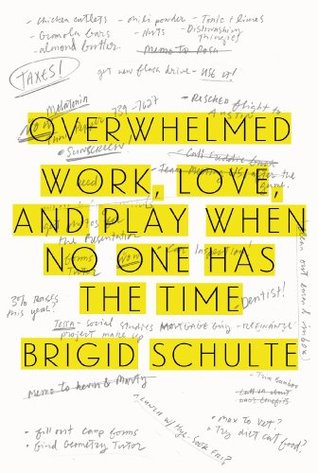More on this book
Community
Kindle Notes & Highlights
Read between
April 19 - July 6, 2019
Without time to reflect, to live fully present in the moment and face what is transcendent about our lives, Hunnicutt says, we are doomed to live in purposeless and banal busyness. “Then we starve the capacity we have to love,” he said. “It creates this ‘unquiet heart,’ as Saint Augustine said, that is ever desperate for fulfillment.”
The German philosopher Martin Heidegger wrote that authentic living requires keeping both life and death in mind at all times, Burnett explains. He called it “dasein,” literally, human be-ing. Few of us are able to do it. It is, perhaps, only human nature to avoid at all costs thinking of life’s ultimate, unavoidable conclusion. Maybe that’s the attraction of busyness, she says. If we never have a moment to stop and think, we never have to face that terrifying truth.
Researchers have found that the way people feel about the stress in their lives is a far more powerful predictor of their general health—whether they’re more likely to be depressed, anxious, smoke cigarettes, or overeat—than any other measure. The perception is more precise, even, than actual stressful life events. In other words, what we think about ourselves and our lives is our reality.
Research has found that not only parents but also their child-free colleagues benefit when a company offers stable quality care because there are fewer disruptions, fewer absences, and higher productivity and morale: Child-care breakdowns that lead to employee absence cost businesses an estimated $3 billion every year.72 “The bottom line,” wrote Cali Yost, a consultant who helps companies devise business strategies for better work-life “fit,” “is that you benefit when the parents you work with have support.”73
She turned to me and in six short words conveyed the power of fathers taking solo parental leave and finally seeing for themselves how annoying it is when, at the end of an intense day with the baby, when you’re exhausted, in a messy house with wild hair, no real clue where the day went save for clipping the baby’s fingernails, and your partner, surveying the disarray, asks, “So what did you do all day?” Anciano smiled apologetically and shook her head. “He hasn’t had a shower yet.”
It wasn’t until leaders saw the drain of talented young women leaving that the company decided to make a systemic change. What drove them, Gockel said, was discovering that the women who left weren’t staying home with their children, as everyone assumed. They were still working, just in workplaces with more give.
“When someone says, ‘Where are you going? It’s 3 p.m.,’ what they’re really saying is, ‘Why do you get to leave early and go flouncing off? You’re supposed to be here until 5, like me.’” But in a ROWE, results and performance matter. Not time. So Thompson, formerly of Best Buy, who now runs a ROWE training company called CultureRx, teaches people to use five magic words: “Is there something you need?” “Here’s the beauty of the statement: If I need something from you, I need to just ask you for it. That is respectful and human,” she explained. “If I don’t need anything from you, I’m a big fat
...more
Research has found that when men and women share the housework, they have more sex,4 and that the more equitably they share duties, the happier they both are.
Were I Queen, my principal affirmative action plan would have three legs. First, it would promote equal educational opportunity, and effective job training for women, so they would not be reduced to dependency on a man or the state. Second, my plan would give men encouragement and incentives to share more evenly with women the joys, responsibilities, worries, upsets, and sometimes tedium of raising children from infancy to adulthood. (This, I admit, is the most challenging part of the plan to make concrete and implement.) Third, the plan would make quality day care available from infancy on.
...more
Brittany McGill, as a Ph.D. student at the University of Maryland, studied time diaries and found that trying to be new fathers at home and live up to the expectations of the ideal worker provider at work was creating the very same time insanity for fathers that working mothers began experiencing in the 1970s.
“When left to itself, the mind turns to bad thoughts, trivial plans, sad memories, and worries about the future,” he wrote. “Entropy—disorder, confusion, decay—is the default option of consciousness.”


